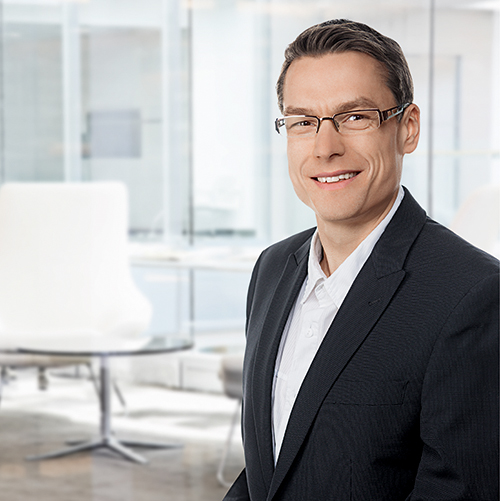Thomas Wollert receives Eppendorf Award for Young European Investigators

Thomas Wollert, group leader at the Max Planck Institute of Biochemistry, was selected by an independent Award Jury for his groundbreaking studies to reveal how fundamental cellular transport processes are coordinated at a molecular level.
The biochemist receives the 20,000 Euro prize for identifying mechanisms that drive intracellular recycling pathways. The official award ceremony with representatives from science, economy, and media will take place at the EMBL Advanced Training Centre in Heidelberg, Germany, on June 25, 2015.
How do cells get rid of their waste?
The cells of our body face similar challenges as we do: without efficient waste disposal systems heaps of trash will accumulate over time. Human cells therefore rely on specific mechanisms to pick up cellular waste such as superfluous or damaged organelles and to deliver them to recycling facilities. Diminished performance of this cellular recycling system may cause severe disorders including Alzheimer´s disease or cancer.
The research of Thomas Wollert and his team focuses on autophagy, which represents an important recycling system of the cell. During autophagy, cellular waste is captured and subsequently delivered to specialized recycling facilities, called lysosomes. Thus, autophagy protects the cell from accumulating cell debris.
“The Eppendorf-Award honors our efforts to understand cellular transport mechanisms at a molecular scale,” says Thomas Wollert, group leader at the MPI of Biochemistry since 2010. “Our findings might provide the basis for the development of new therapies against cancer or neurodegenerative diseases such as Alzheimer.”
With the Eppendorf Young Investigator Award, which was established in 1995, the Eppendorf AG honors in partnership with the scientific journal Nature outstanding work in biomedical research to support young scientists in Europe up to on age of 35.
The Award winner is selected by an independent committee composed of chairman Prof. Reinhard Jahn (Max Planck Institute for Biophysical Chemistry, Göttingen, Germany), Prof. Dieter Häussinger (Clinic for Gastroenterology, Hepatology and Infectiology, Düsseldorf, Germany), Prof. Maria Leptin (EMBO, Heidelberg, Germany), and Prof. Martin J. Lohse (Institute for Pharmacology and Toxicology, University of Würzburg, Germany). The award is endowed with 20,000 €.
Contact
Dr. Thomas Wollert
Molecular Membrane and Organelle Biology
Max Planck Institute of Biochemistry
Am Klopferspitz 18
82152 Martinsried
Germany
Email: wollert@biochem.mpg.de
www.biochem.mpg.de/wollert
Anja Konschak
Public Relations
Max Planck Institute of Biochemistry
Am Klopferspitz 18
82152 Martinsried
Germany
Tel. +49 89 8578-2824
E-Mail: konschak@biochem.mpg.de
www.biochem.mpg.de
http://www.biochem.mpg.de/4979496/20150420_wollert_eppendorf – Press Release and Further Information
http://www.biochem.mpg.de/en/rg/wollert – Research Group “Molecular Membrane and Organelle Biology” (Dr. Thomas Wollert)
Media Contact
All latest news from the category: Awards Funding
Newest articles

Superradiant atoms could push the boundaries of how precisely time can be measured
Superradiant atoms can help us measure time more precisely than ever. In a new study, researchers from the University of Copenhagen present a new method for measuring the time interval,…

Ion thermoelectric conversion devices for near room temperature
The electrode sheet of the thermoelectric device consists of ionic hydrogel, which is sandwiched between the electrodes to form, and the Prussian blue on the electrode undergoes a redox reaction…

Zap Energy achieves 37-million-degree temperatures in a compact device
New publication reports record electron temperatures for a small-scale, sheared-flow-stabilized Z-pinch fusion device. In the nine decades since humans first produced fusion reactions, only a few fusion technologies have demonstrated…





















